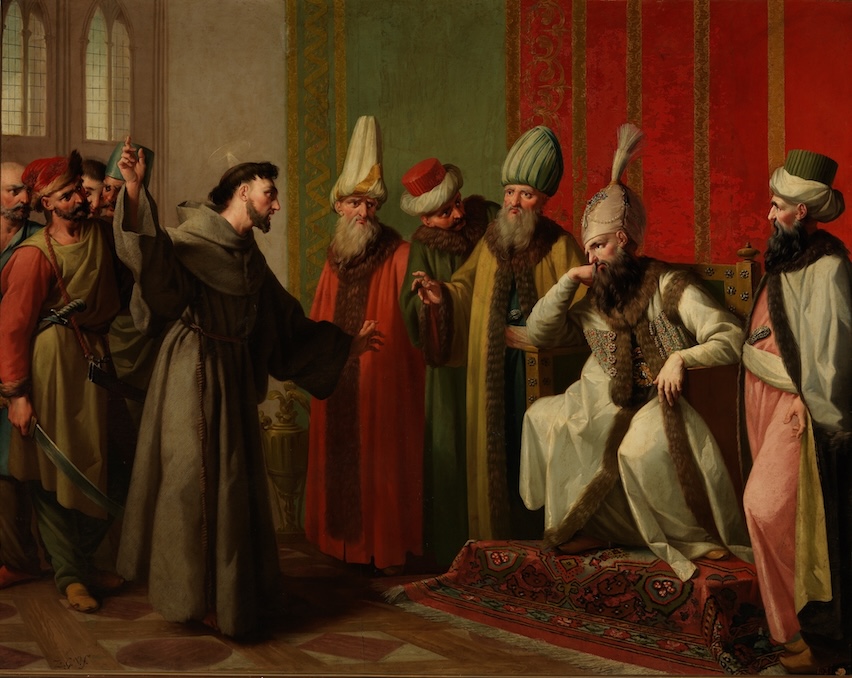When I retired after a decade of service at the Holy See, things were not going well. That was in 2016. Truth be told, things were already not going well even under Benedict XVI. The Roman Curia is a bureaucratic mess.
But magisterial messes are even worse, and a massive one occurred four years after my departure.
It wasn’t a spontaneous comment made during an impromptu press conference. It wasn’t an off-the-cuff, ambiguous statement on a topic like marriage, LGBTQ rights, or capital punishment. It was an entire theological vision. Or lack thereof.
This October marks five years since the biggest bungle of the Francis pontificate. Sadly, it is closely connected to the very name Jorge Bergoglio chose upon his election to the See of Peter. Interpreting Saint Francis, his legacy, and the charism he bequeathed the Church has always been difficult. Fratelli Tutti massively compounded that difficulty.
Most criticisms of Francis’s 2020 encyclical focus on a specific item in the laundry list of issues he presents as crucial to our time: racism, immigration, interreligious dialogue, the dignity of women, capital punishment, and others. But I’ve seen very few critiques of the document’s foundational principle.
Even though Francis himself described the encyclical as a hodge-podge of prior homilies, addresses, and catechetical talks, at its core is a highly dubious and risky enterprise: namely, the bracketing of Christ from Christianity in the attempt to enter into dialogue with the world about the meaning of “fraternity and social friendship.”
“Although I have written it from the Christian convictions that inspire and sustain me, I have sought to make this reflection an invitation to dialogue among all people of good will,” he wrote. (6) It is the “although” that is crucial here. Francis implies that the convictions about fraternity and social friendship that flow from his Christian faith can be communicated to others in a way that doesn’t depend on that faith since they can indifferently flow from other faiths or simply from the un-evangelized human condition.
Francis justified his approach by appealing to Saint Francis’s engagement with the Sultan of Egypt, Al-Malik al-Kamil, in 1219:
Unconcerned for the hardships and dangers involved, (Saint) Francis went to meet the Sultan with the same attitude that he instilled in his disciples: if they found themselves “among the Saracens and other nonbelievers,” without renouncing their own identity they were not to “engage in arguments or disputes, but to be subject to every human creature for God’s sake.”

Saint Francis’s enjoined the friars to refrain from arguments and disputes not as a way of bracketing Christ’s commandment to preach the Good News, but as the very means of fulfilling it. Saint Francis fully intended to convert the Sultan, not to merely share with him a Christian vision of fraternity and social friendship minus Christ.
Without a foundational Christocentric principle, Fratelli Tutti quickly descends into platitudes that are almost laughable:
Let us dream, then, as a single human family, as fellow travelers sharing the same flesh, as children of the same earth which is our common home, each of us bringing the richness of his or her beliefs and convictions, each of us with his or her own voice, brothers and sisters all. (8)
The idea is that Christianity shows or models the kind of community humans are inherently capable of. Yet the early Christians knew well that the koinonia they enjoyed was a gift. It was attributable to divine action, not human achievement. It consisted in the Mystical Body of Christ, not a political paradigm. It motivated the baptized not merely to preach something that Christ preached, but to preach Christ Himself.
This was the foundational principle of John Paul II’s first encyclical, Redemptor Hominis (1979). The primary focus of Christian disciples should be on the community they have been made a part of through grace, not the community of the world they are called to make some contribution to building up.
Saint John Paul writes that there is a “deeply ‘personal’ aspect and dimension” of the community of disciples, “which, in spite of all the deficiencies of its community life – in the human meaning of this word – is a community precisely because all its members form it together with Christ himself, at least because they bear in their souls the indelible mark of a Christian.” (21)
The Church – and her Magisterium – is yearning to return to this Christocentric approach. John Paul II repeatedly reminded Christians that, in the end, the only thing they have to offer different from others is not some humanitarian program, some recipe for moral perfection, or some model of worldly political perfection, but Christ Himself.
There is no “although” in the Christocentric approach, no reason to bracket Christ from the equation. If Saint Francis avoided arguments and disputes when engaging the Saracens, it was not because he feared his Muslim interlocutors wouldn’t understand Christ, but because it was the best way of communicating Christ. Saint Francis’s visit with the Sultan advanced mutual understanding and promoted harmonious relations between Christians and Muslims, but the purpose of his visit was nothing short of “preaching” Christ.
The very first of Saint Francis’ Admonitions from which Pope Francis took the title of this encyclical is dedicated not to “social friendship,” but to the Most Holy Eucharist: “All those who behold the Sacrament of the Body of Christ which is sanctified by the word of the Lord upon the altar by the hands of the priest in the form of bread and wine, and who do not see and believe according to the Spirit and Divinity that it is really the most holy Body and Blood of our Lord Jesus Christ, are condemned.”
The lack of a similar Eucharistic foundation for Fratelli Tutti sets it up for miserable failure. Let’s hope that’s corrected before another five years expire.











